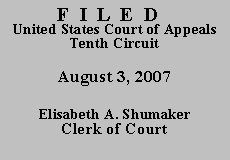

Julian Fregoso-Rodriguez (also known as Miguel Barragan-Ledemza) pled
guilty pursuant to a plea agreement to a single count(1) of conspiracy to possess
with intent to distribute more than one kilogram of heroin in violation of 21
U.S.C. §§ 846, 841(a)(1) and 841(b)(1)(A). As part of the plea agreement, the
government agreed to a reduction in his offense level for acceptance of
responsibility and conceded Fregoso-Rodriguez may also be eligible for a
"safety-valve" reduction, allowing him to avoid the statutory mandatory minimum
sentence of ten years imprisonment for his offense. See USSG §§
3E1.1, 5C1.2
and 21 U.S.C. § 841(b)(1)(A). Based on a total offense level of twenty-nine and
a criminal history category of I, Fregoso-Rodriguez's advisory sentencing
guidelines range was eighty-seven to one hundred eight months imprisonment.
At sentencing, Fregoso-Rodriguez asked the district court to sentence him to
eighty-seven months imprisonment. The district court agreed. It sentenced him
to eighty-seven months imprisonment and recommended removal proceedings
begin while he served his sentence.
Fregoso-Rodriguez's counsel has filed a brief pursuant to Anders v.
California, 386 U.S. 738 (1967), advising the court that this appeal is wholly
frivolous. Accordingly, counsel also seeks permission to withdraw. Under
Anders, counsel may "request permission to withdraw where counsel
conscientiously examines a case and determines that any appeal would be wholly
frivolous." United States v. Calderon, 428 F.3d 928, 930 (10th Cir. 2005).
Counsel is required to submit an appellate brief "indicating any potential
appealable issues . . . ." Id. Once notified of counsel's brief, the defendant may
then submit additional arguments to this Court. Id. We "must then conduct a full
examination of the record to determine whether defendant's claims are wholly
frivolous." Id.
Fregoso-Rodriguez was given notice of the Anders brief and counsel's
request to withdraw, but he did not file a brief or other pleadings.(2) Our
resolution of the case is, therefore, based on counsel's Anders brief, the
government's response, and our independent review of the record.
In his Anders brief, counsel notes Fregoso-Rodriguez appeals from his
sentence on the simple ground that it is too long and correctly identifies our plain
error standard of review because no objection was lodged below. Counsel
further asserts that such an appeal is frivolous because the sentence imposed is
within a properly calculated guideline range, the court considered the 18 U.S.C. §
3553(f) factors, and the sentence received was the one requested by Fregoso-Rodriguez. Our
independent review of the record demonstrates counsel is correct
in asserting this appeal is frivolous. The district court imposed a sentence at the
bottom of the properly calculated advisory guidelines range. Therefore, the
sentence is presumptively reasonable. United States v. Kristl, 437 F.3d 1050,
1055 (10th Cir. 2006) (sentences within a properly calculated guideline range are
presumptively reasonable). A complete review of the record reveals no facts or
circumstances that would render Fregoso-Rodriguez's sentence unreasonable in
light of the other sentencing factors set out in § 3553(a). See id. Thus, the
record reveals no claims arguable on their merits. Counsel's request to withdraw
is GRANTED and this appeal is DISMISSED.
Entered by the Court:
Terrence L. O'Brien
United States Circuit Judge
*. This order and judgment is not binding
precedent except under the doctrines of
law of the case, res judicata, and collateral estoppel. It may be cited, however, for its
persuasive value consistent with Fed. R. App. P. 32.1 and 10th Cir. R. 32.1.
1. The Superseding Indictment alleged
sixteen counts.
2. Anders holds "if counsel finds
[his client's] case to be wholly frivolous, after a
conscientious examination of it, he should so advise the court and request permission to
withdraw." 386 U.S. at 744. Counsel must submit to both the court and his client a
"brief referring to anything in the record that might arguably support the appeal." Id.
The client may then "raise any points he chooses." Id. Thereafter, the court must
completely examine all the proceedings to determine the frivolity of the appeal. "If it so
finds it may grant counsel's request to withdraw and dismiss the appeal . . . . [I]f it finds
any of the legal points arguable on their merits (and therefore not frivolous) it must, prior
to decision, afford the indigent the assistance of counsel to argue the appeal." Id.
UNITED STATES OF AMERICA,
Before KELLY, MURPHY, and O'BRIEN,
Circuit Judges.
After examining the briefs and appellate record, this panel has determined
unanimously that oral argument would not materially assist in the determination
of this appeal. See Fed. R. App. P. 34(a)(2); 10th Cir. R. 34.1(G). The case is
therefore ordered submitted without oral argument.
Click footnote number to return to corresponding location in the text.
![]() | Keyword |
Case |
Docket |
Date: Filed /
Added |
| Keyword |
Case |
Docket |
Date: Filed /
Added |
![]() (15706 bytes)
(15706 bytes)
![]() (10866 bytes)
(10866 bytes)
Comments to: WebMaster,
ca10 [at] washburnlaw.edu.
Updated: August 6, 2007.
HTML markup © 2007, Washburn University School of Law.
URL: http://ca10.washburnlaw.edu/cases/2007/08/06-2263.htm.